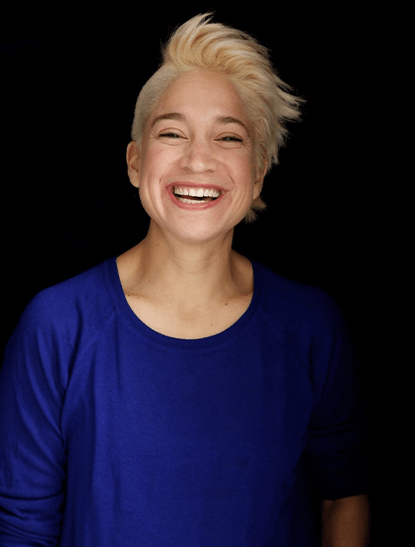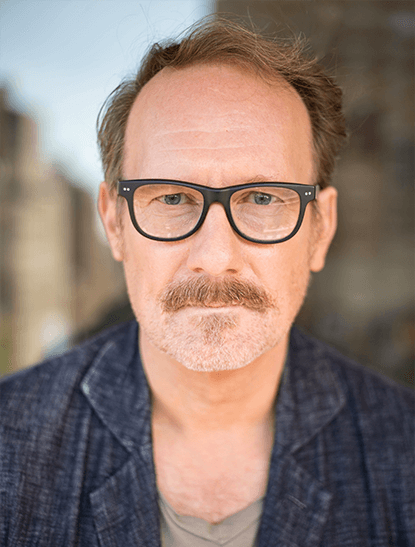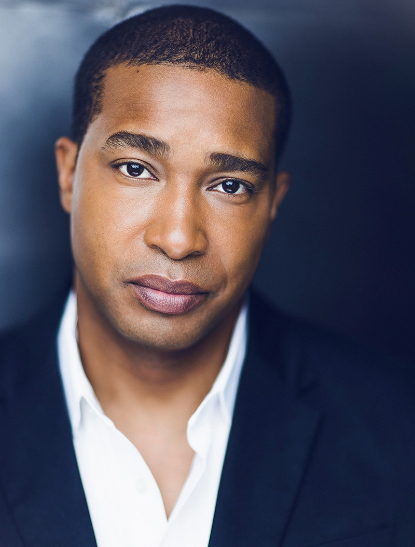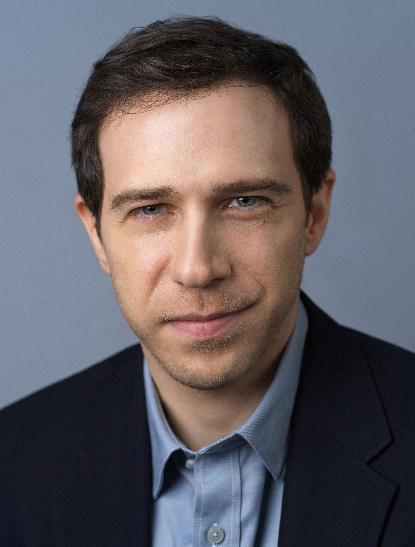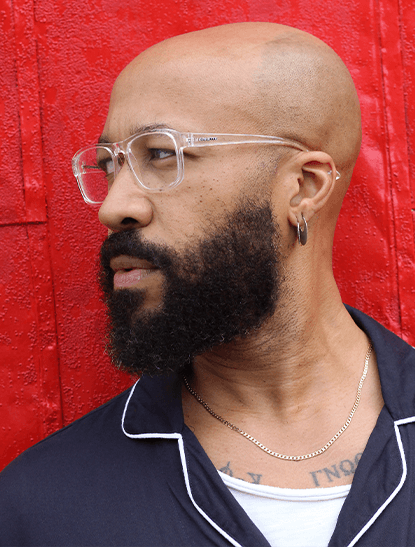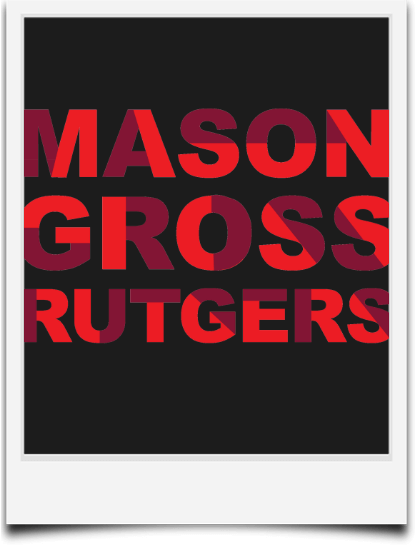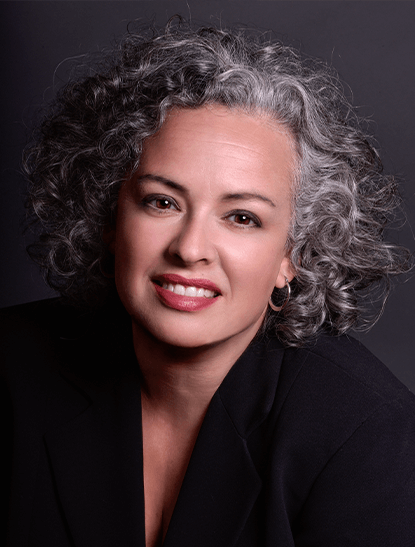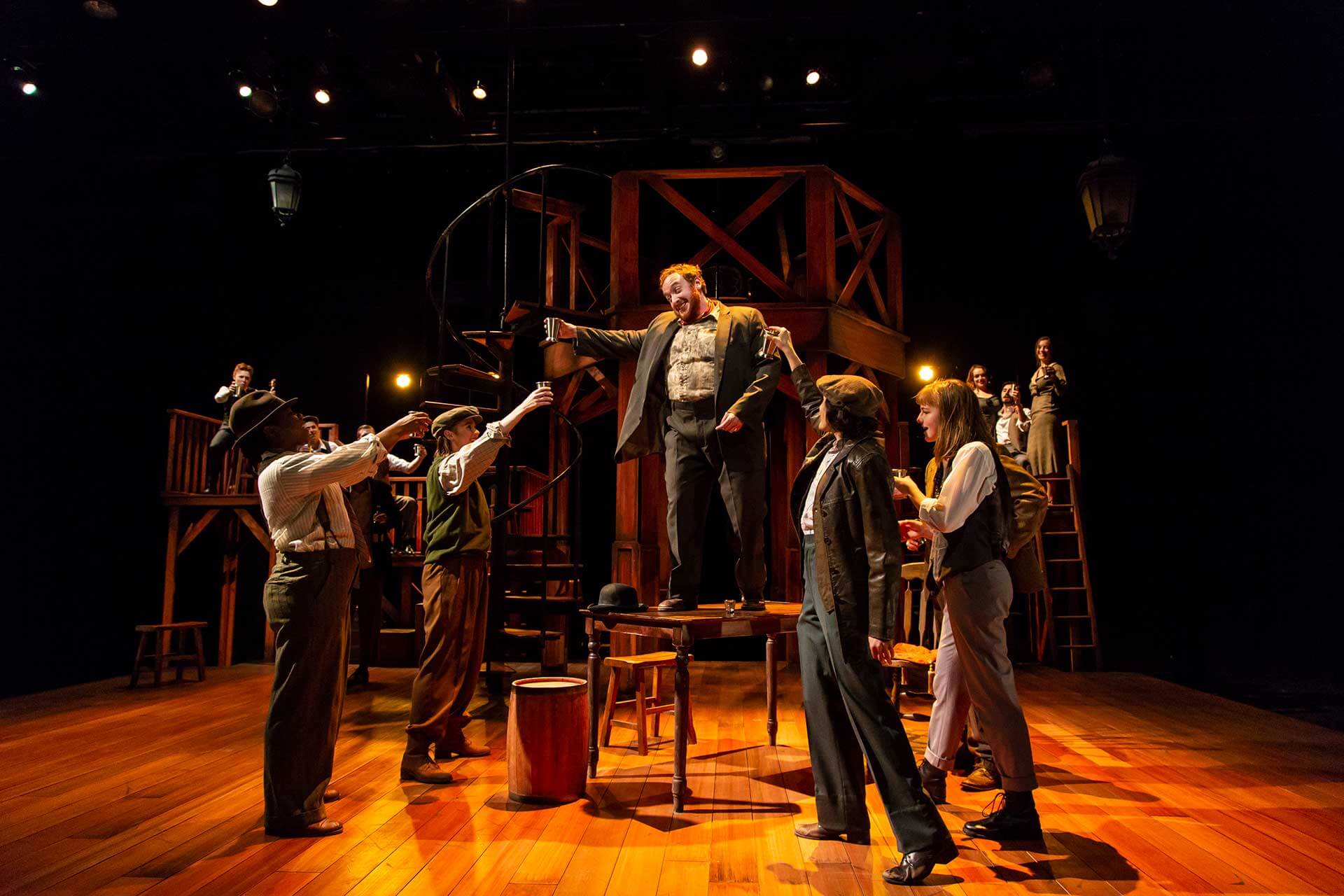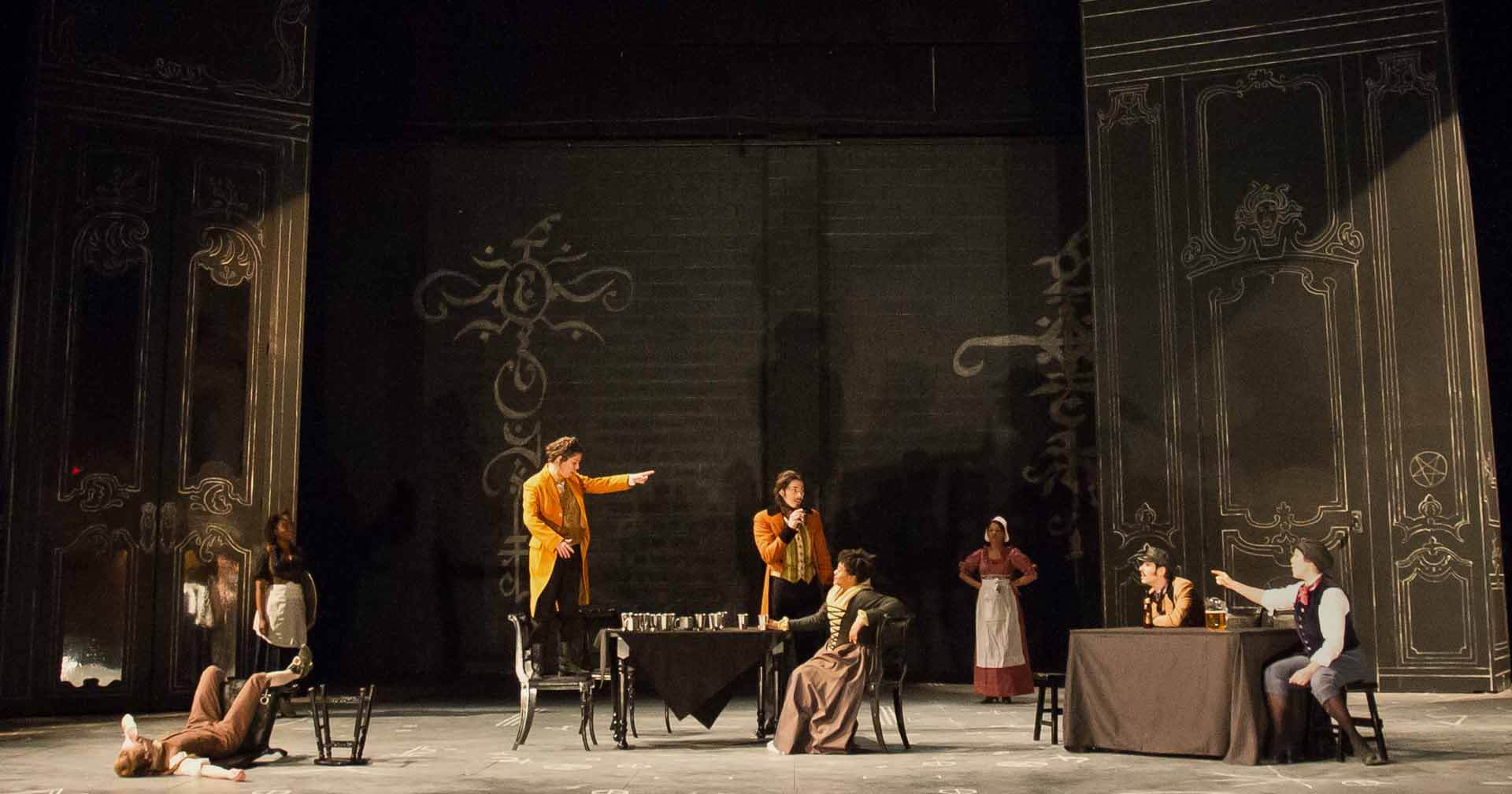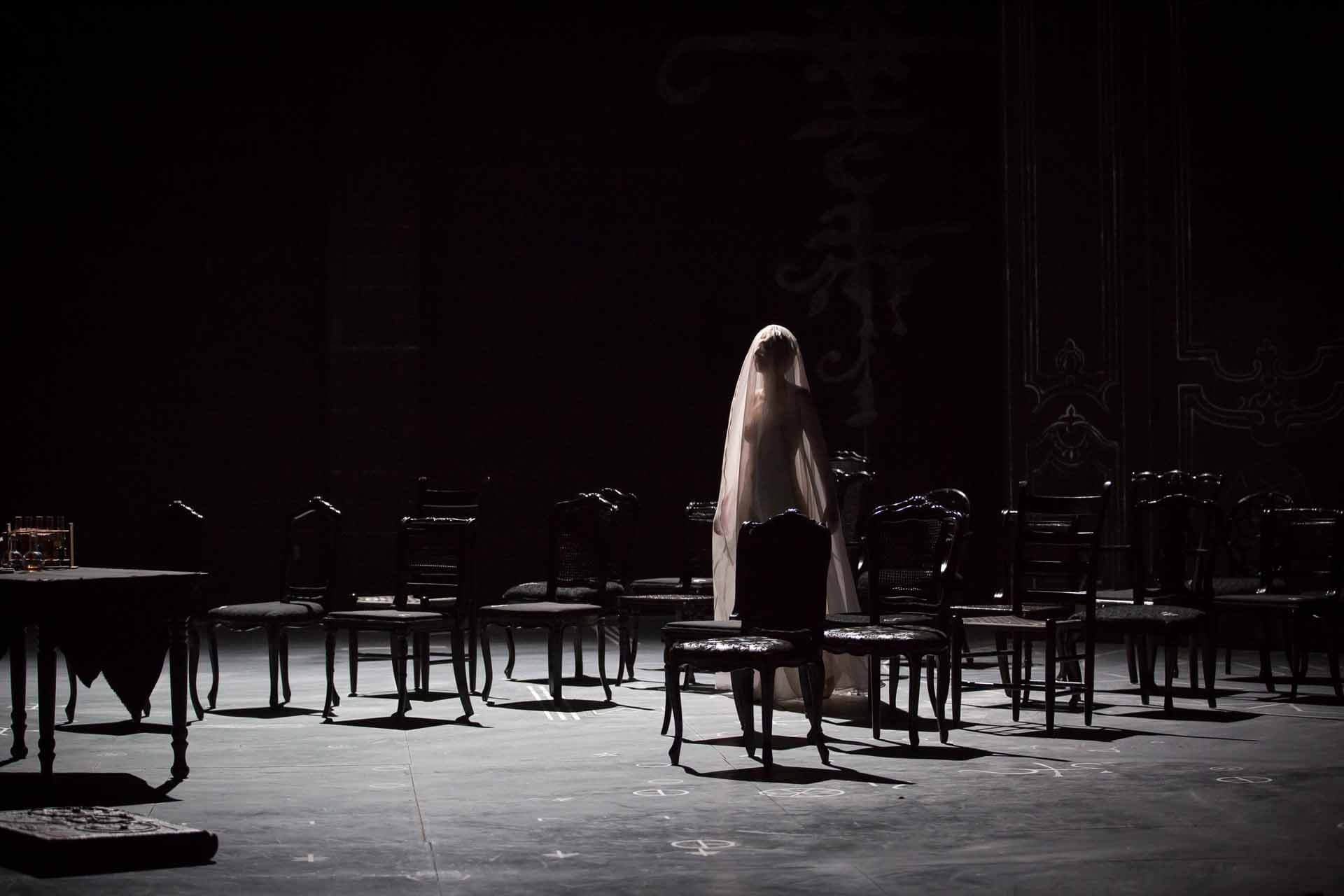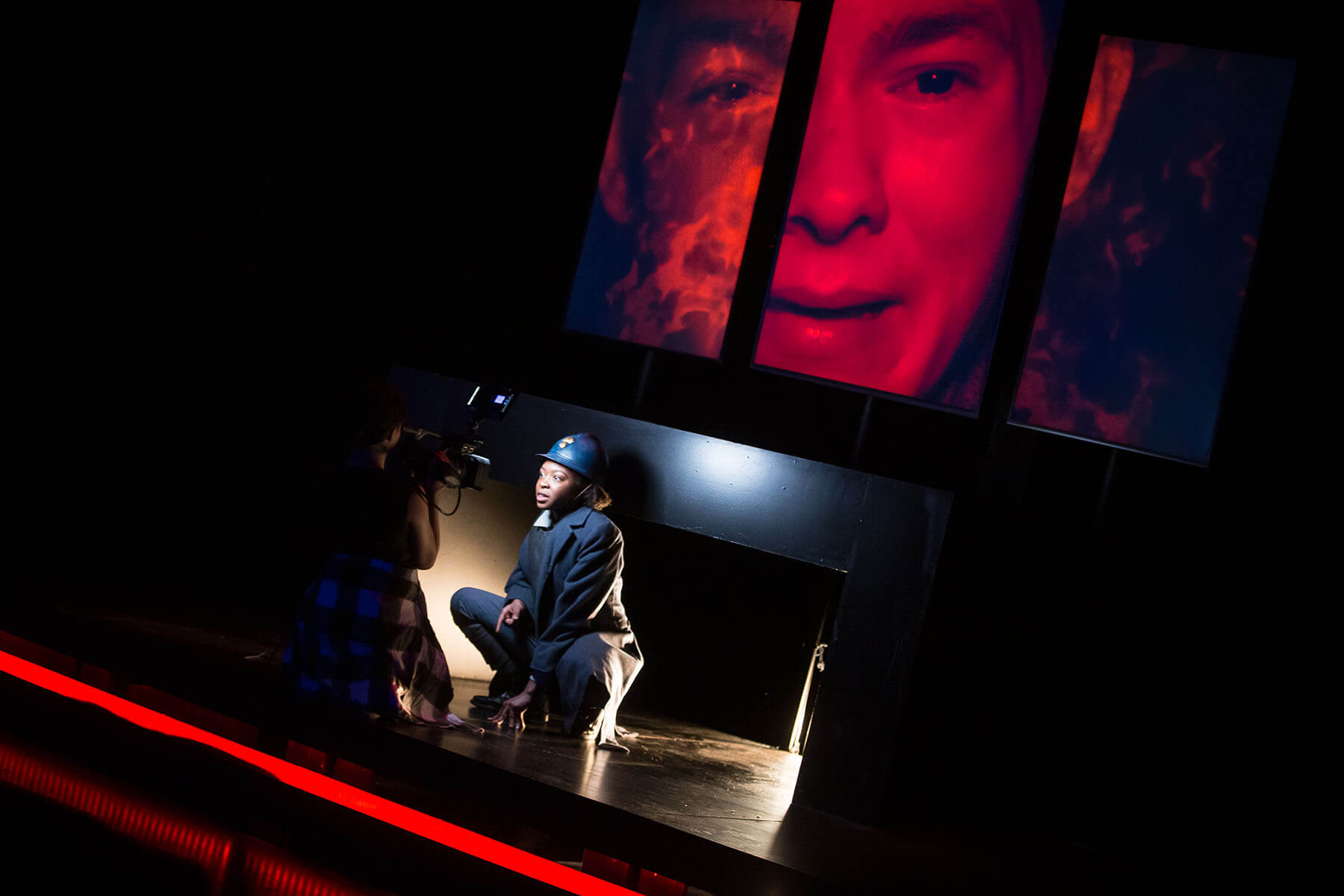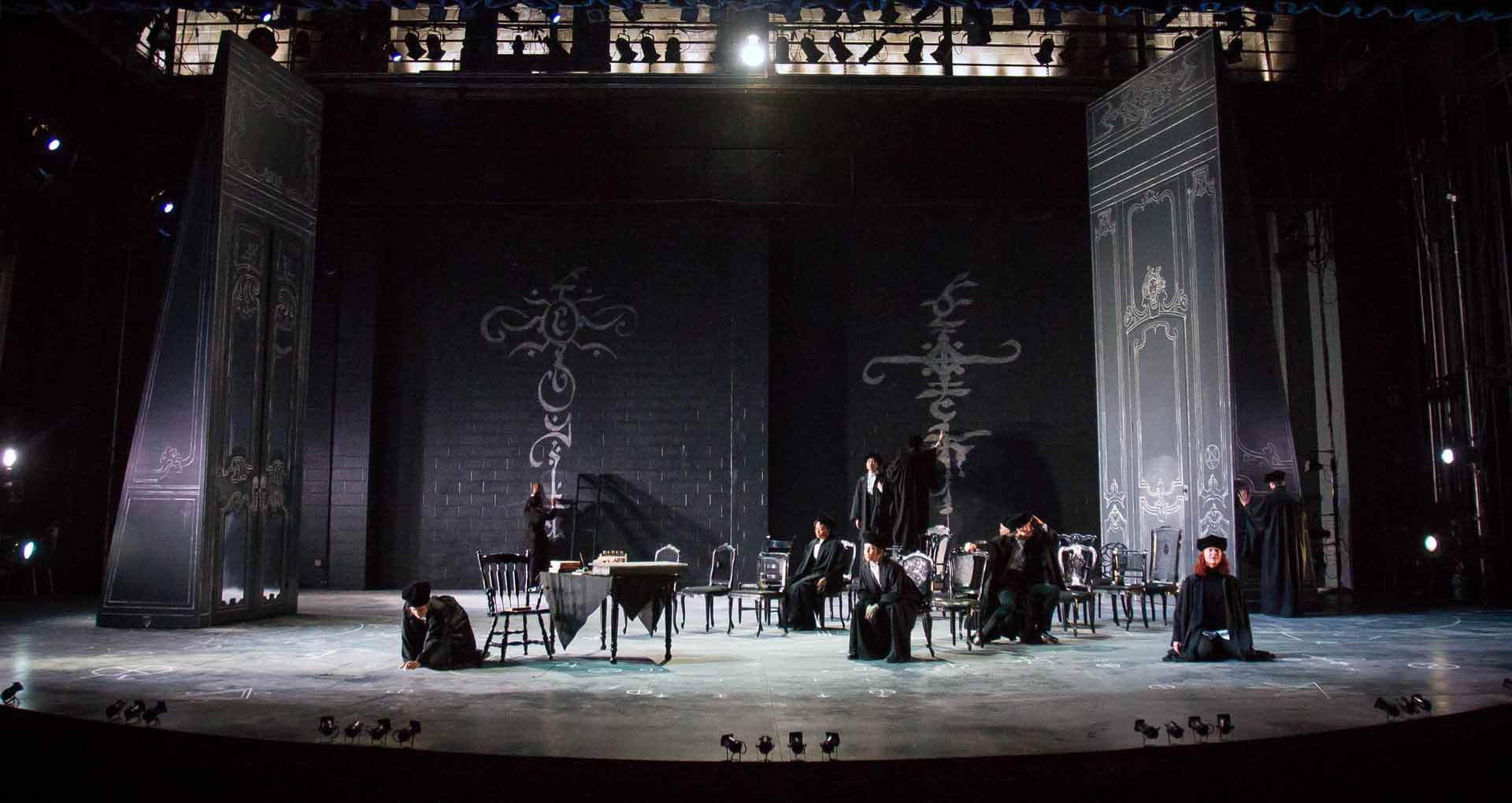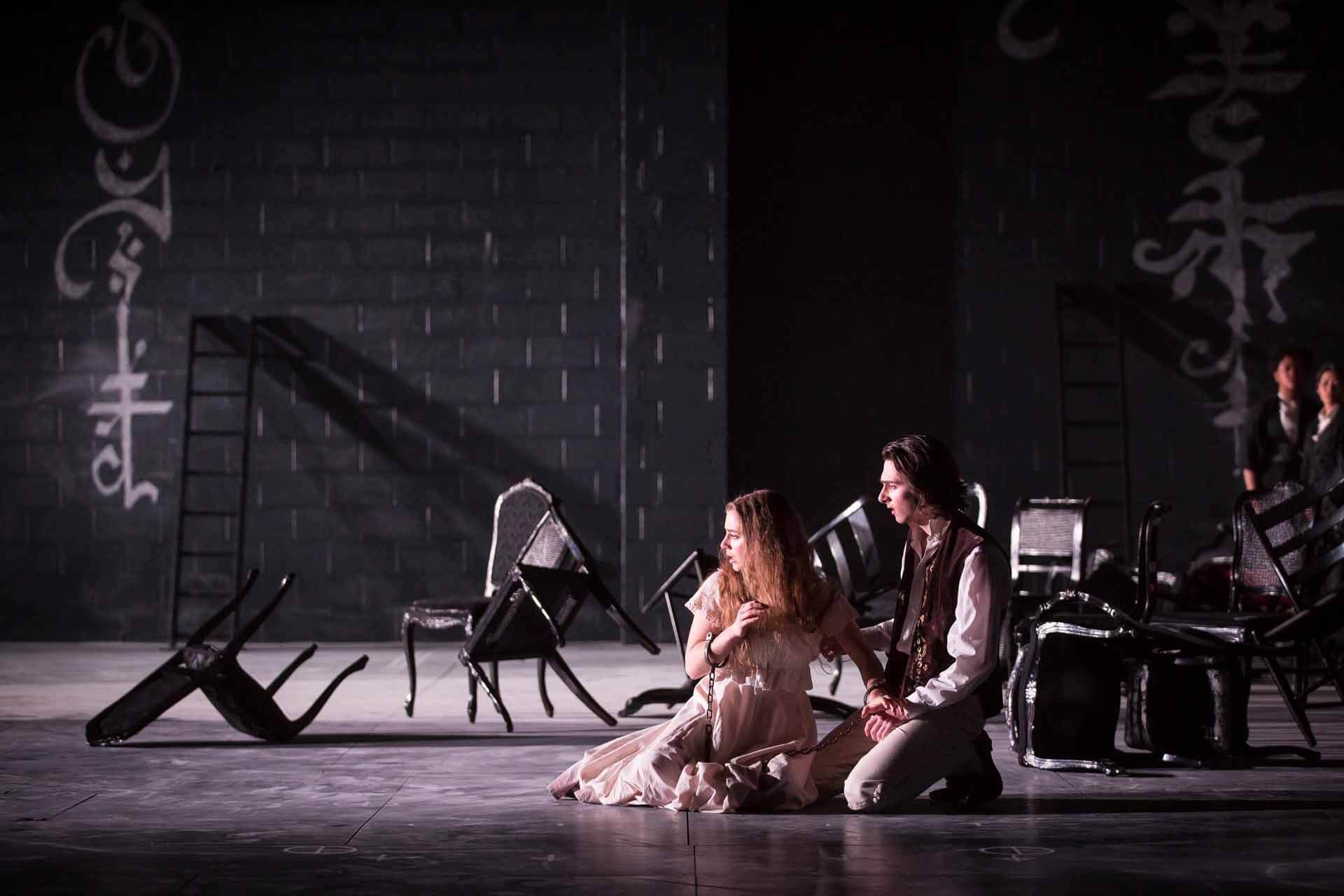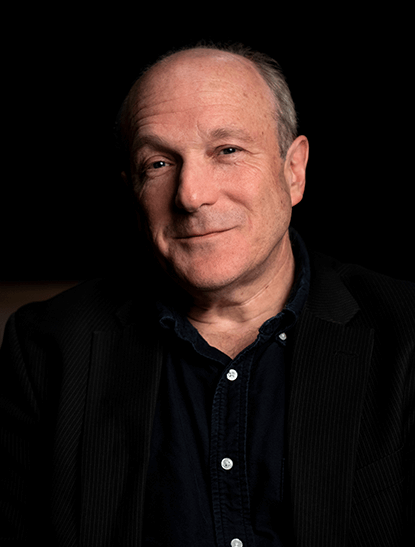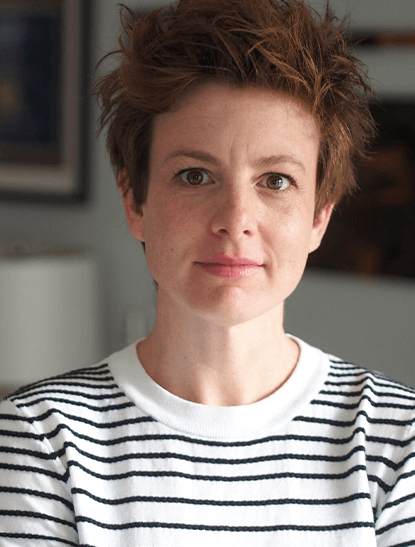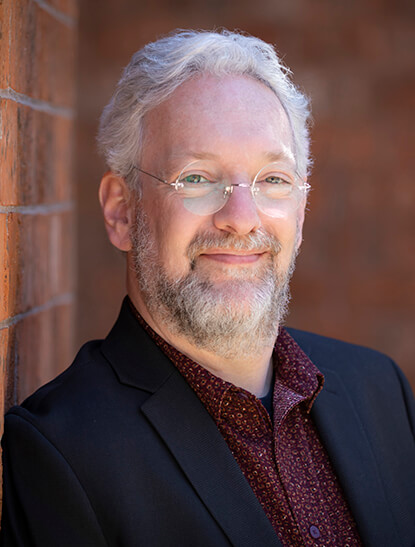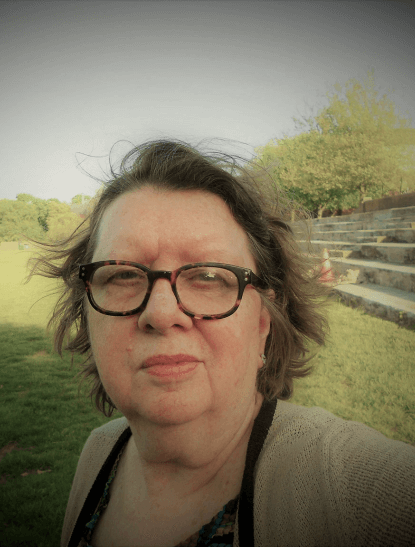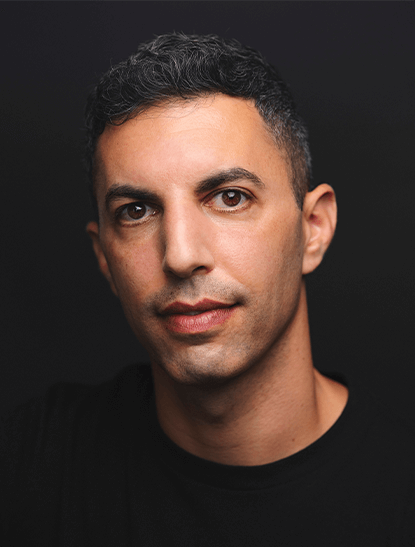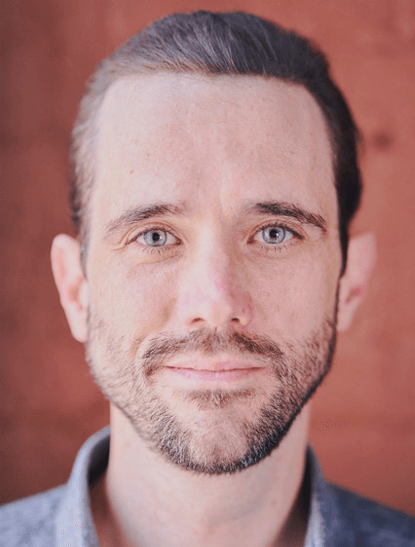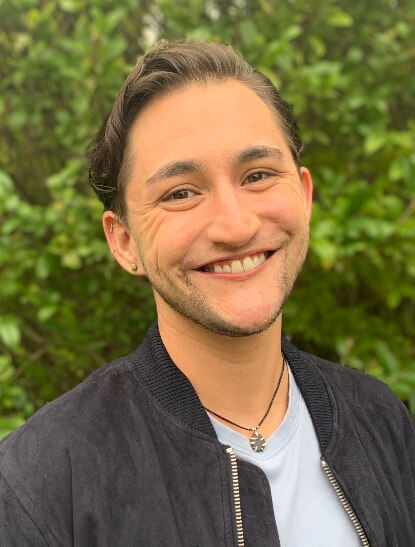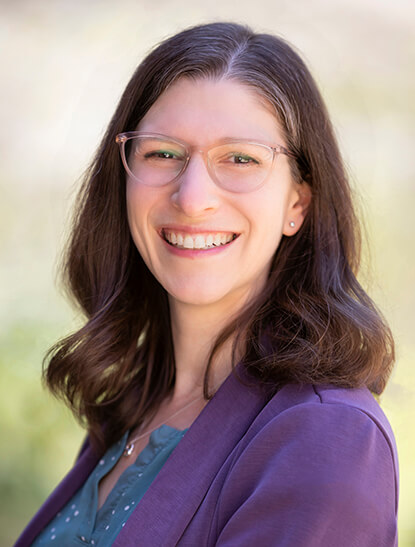Theater is a multidimensional art form requiring creativity, collaboration, and craft. Our commitment in the Theater Department at Mason Gross School of the Arts is to educate, guide and foster the aspiring theater professional and provide uniquely individualized instruction and practical experience, including intensive studio classes, innovative academic curricula, and productions.
The Theater Department offers a program for BFA in theater with the following concentrations:
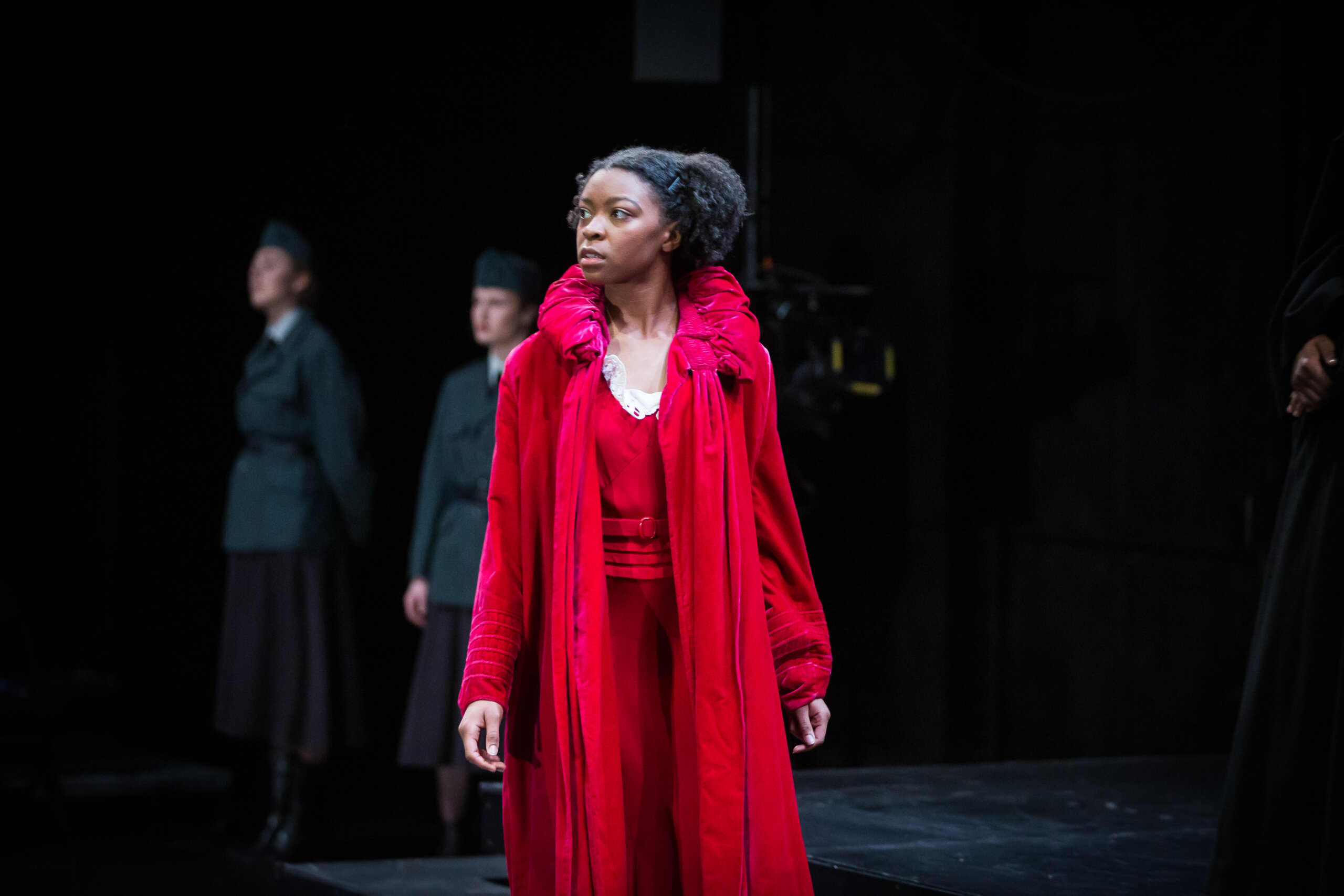
Concentration in Acting
The acting program offers a rigorous and collaborative 4-year course of study for students who aspire to a career in the ever-evolving entertainment industry. Students are trained in various acting techniques, including Meisner, on-camera, devising, classics, and global theater with a commitment to new and emerging methodologies and practices.
Students will study at the Rutgers Conservatory at Shakespeare’s Globe in London. The training concludes with a focus on the industry and launching of the artist’s professional careers. Students are eligible for productions in the program in the second through final years in study.
The drama program is committed to equitable, representative, and evolving practices to support each student on their journey by continuing to learn, scrutinize and adjust our program to facilitate training that is current, imaginative and inspired by the needs of the students, the demands of the industry, and work that is yet to be created.
BFA ACTING LEARNING GOALS
- Practical: Student actors will develop their instruments mentally, emotionally, physically, and vocally to use their whole selves as instruments for their art. Student actors will gain an understanding of current industry expectations and how to join the industry as working professionals in various audition and production situations. They will develop an ability to apply acting technique to variable material to suit any medium, genre, style, space, as well as many other facets of artistry.
- Theoretical: Student actors will be able to contextualize their technique, skills, and artistry through an understanding of theater history and global practices. They will gain an ability to engage with various types of scripts and texts analytically, critically, and aesthetically. They will understand how to devise their own artistic choices and how to embody choices which come out of artistic collaboration.
- Values: Student actors will learn how to engage with their own personal artistic voice. They will be able to consider, examine, and question their personal relationship with the role of representation in entertainment and media.\
- Self: Student actors will gain greater personal creativity, self-reliance, and self-confidence. They will learn how to advocate for themselves throughout an artistic process. They will develop a high level of stamina to meet the demands on their bodies and minds needed to complete the rigorous training. Student actors will develop practices of sustainability to ensure longevity and vitality throughout their professional careers.
- Community: Student actors will gain strong skills in collaboration and communication. They will be able to work productively within an ensemble or company. As actors and storytellers, they will be able to affect their broader communities through performance that interacts with culture, public health, education, and political expression.
Year 1: Process
- Acting – Meisner progression
- On-camera – Beginning to understand the form
- Voice & Speech
- Theatre Histories
- Electives/ Liberal Arts/ University requirements
- Production assignments – Crew and understudy opportunities
- Movement
- Auditioning – Beginning fundamentals and technique
- Stage Craft – General theater experience course in additional acting techniques
Year 2: Layering
- Acting – Meisner Progression with a focus on rhetoric
- On-camera – Expanding knowledge of camera work, a small film project
- Voice & Speech – Continued progression
- Script/Text analysis
- Contemporary Global Perspectives
- Electives/Liberal Arts/ University Requirements
- Production assignments – Beginning to move from the classroom to the stage
- Movement
- Auditioning – Contemporary work
- General theater experience course in additional acting techniques
Year 3: Application and Consistency
- Acting – Scene study and styles (TV, Film, Classical Theatre, Modern)
- On -camera – Performance and auditioning
- Voice & Speech
- Devised Theatre
- Electives/Liberal Arts/ University Requirements
- Production – A three to four show season
- Movement – Including stage combat
- Auditioning – Classical work
Year 4: Begin Again
- Study Abroad – Fall term
- Professional Industry Showcase – NYC
- Production
- Business of the Business
- Auditioning
- Special techniques – (Voice, Movement, Speech, Acting, Text)
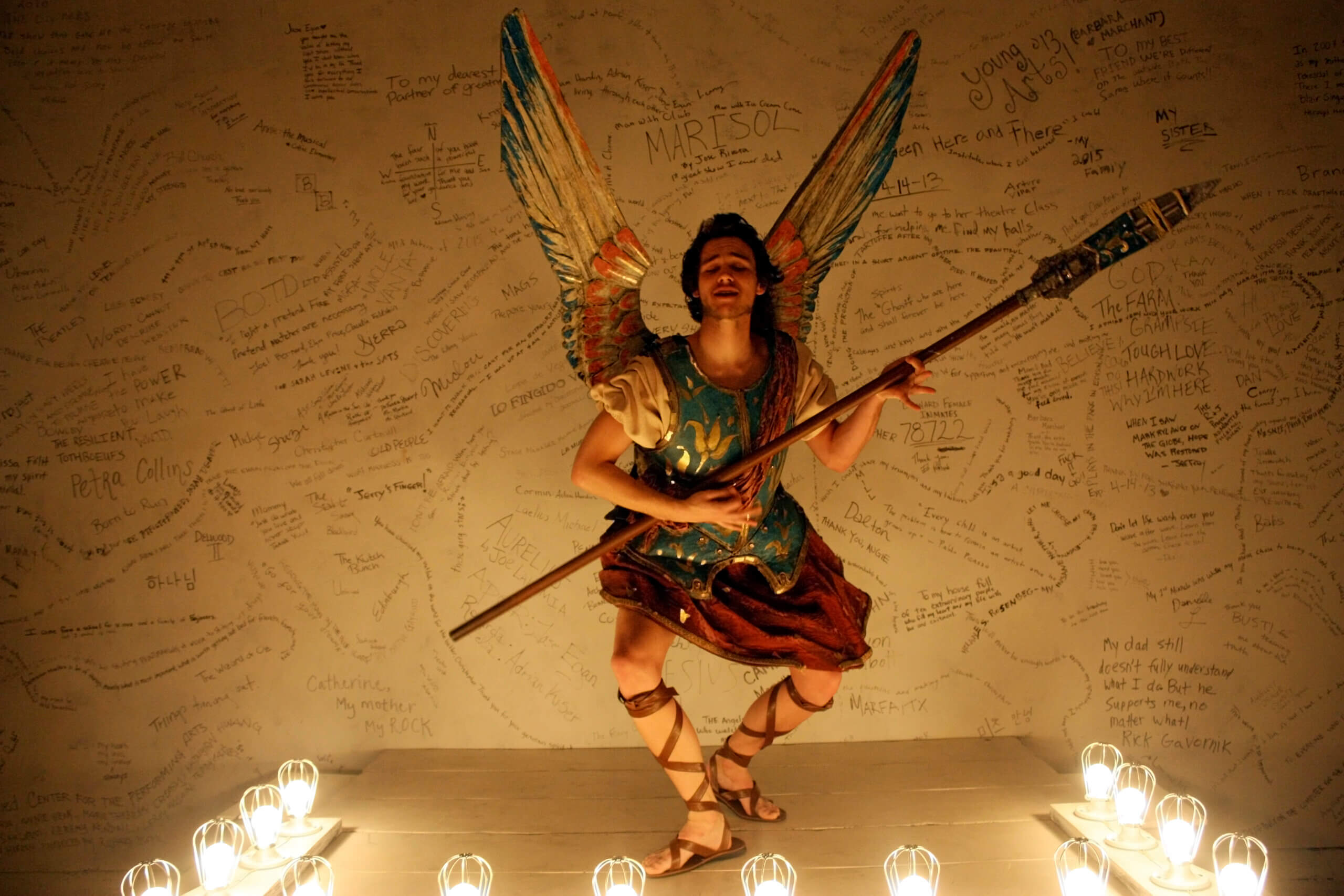
Concentration in Design
Theater design students are part of a dynamic 4-year professional training program that includes a semester residency in London. Our program provides students with essential artistic and technical skills as well as a strong foundation in theater history and theory. The faculty are distinguished working professionals who provide students with one-on-one mentoring and prepare them to be effective artists and collaborators in the entertainment industry.
Areas of study include costume, lighting, and scenic design.
BFA COSTUME DESIGN LEARNING GOALS
- Students will learn to analyze theatrical texts from the point of view of the social, historical, fashion and decorative arts. Developing a richer context in which to express the world of the play and production.
- Students will develop their own individual and dynamic style of costume rendering. Courses in life drawing, digital arts and various drawing practices guide students in learning techniques that support the project and conceptual choices made by themselves, the director and the design team.
- Students will acquire basic skills in costume construction and costume craft techniques (fabric dying, draping, pattern making), in order to gain a better understanding of the costume design production process.
- Student will receive a basic foundation in clothing, architecture and decorative arts history styles from ancient civilizations to the present day. Acquiring and incorporating basic terminology and visual identification of various periods using a variety of research tools that enhances their own creative work.
- Students will learn to analyze and critique their work and the work of their peers through comprehensive class discussions. Students having built an aesthetic awareness, a curiosity, and an understanding of the creative and collaborative nature of theater design will be able present ideas verbally and visually to the director and the design team.
- Students will develop professional practices to be successful costume designers who are good citizens and ambassadors in the profession.
BFA LIGHTING DESIGN LEARNING GOALS
- Students will gain an intuitive understanding of the psychological and physiological aspects of light, how it functions in the real world, and how to manipulate the medium to achieve a specific set of technical and creative objectives.
- Students will develop a deeper appreciation and understanding of the collaborative process, and how lighting design must inform and underscore intention in every aspect of a realized production, from text to design to music, to direction.
- Students will learn to conceptualize, organize, and express original and evocative lighting ideas for a play, and develop the ability to clearly articulate these ideas in a group discussion, in writing and in the completed work onstage.
- Students will learn the processes and techniques to translate a lighting design from schematic and conceptual form to a complete and comprehensive package of lighting documents and drafting, produced to the highest professional standards. This will include intensive study in photometrics, optics, digital and hand drafting, and the latest industry-standard lighting software in use today.
- Through work in the lightlab and realized productions with the Rutgers Theatre Company, the student will develop and demonstrate a growing attention to detail, and the ability to manipulate color, angle, rhythm and composition to achieve particular design and storytelling objectives.
- Through realized design work with the Rutgers Theatre Company, the student will acquire greater speed, accuracy, and self-confidence in the technical rehearsal process, and in his /her professional interactions and decision-making.
- The student will acquire all the requisite skills needed to work as an assistant or associate lighting designer in regional theatre, on or off- Broadway.
BFA SCENIC DESIGN LEARNING GOALS
- Students will learn to analyze a script from the point of view of the social, historical, architectural and decorative arts contexts that express the storytelling and characters of the play.
- Students will learn to create dynamic theatrical spaces so that the movement of actors in space will support the story and conceptual choices made by the director and the design team.
- Students will develop skills in analyzing and representing three-dimensional space (perspective drawing, drafting, model making), as well as composition, color, texture, and stagecraft.
- Students will learn to analyze and critique their work and the work of their peers through comprehensive class discussions. Students will build an aesthetic awareness and understanding of the creative and collaborative nature of theater design and the need to present ideas verbally and visually to the director and the design team.
- Students will learn “best average” problem-solving methods and techniques of stagecraft used in the development of a set design
- Students will develop professional practices to be successful scenic designers who are good citizens and ambassadors in the profession.
Year 1: Foundations
The first year provides the foundations of design theory, skills, and history. All first-year students take core classes together, providing a strong sense of community and an appreciation of the collaborative nature of theater.
Year 2: Building
The second year builds on the foundations learned in the first year and provides more in-depth explorations into the areas of concentration. One course, “Global Theater,” analyzes current theater styles and theories across the globe.
Year 3: London
All design students spend the fall semester of their third year in London, where they study with distinguished British designers and take full advantage of London’s dynamic theater and cultural opportunities. Field trips to theater productions, museums, and galleries are all part of the program. Back at Rutgers in the spring, students pursue in-depth training in their area of design.
Year 4: Transition
All students will conclude their programs in their fourth year preparing for transition into the industry with professional development, networking, and portfolio development. Professional contacts are developed with the Mason Gross faculty and through possible internships. Design students are presented to the industry at a design portfolio presentation in New York City in their final semester.
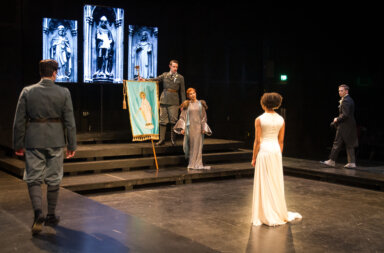 Mason Gross School of the Arts costume design program provides student designers an expansive course of study in close collaboration with professional design and costume technology faculty members who are themselves actively engaged in their fields. Working in spacious studios and well-equipped shops; emerging designers benefit from a wealth of resources both in New Jersey and New York City. Students’ designers shop fabrics, engage in research at museums, libraries, and archives, and visit annual special fashion exhibits at the Fashion Institute of Technology, Metropolitan Museum of Art, and other cultural institutions.
Mason Gross School of the Arts costume design program provides student designers an expansive course of study in close collaboration with professional design and costume technology faculty members who are themselves actively engaged in their fields. Working in spacious studios and well-equipped shops; emerging designers benefit from a wealth of resources both in New Jersey and New York City. Students’ designers shop fabrics, engage in research at museums, libraries, and archives, and visit annual special fashion exhibits at the Fashion Institute of Technology, Metropolitan Museum of Art, and other cultural institutions.
This rigorous and comprehensive training includes a carefully integrated series of courses in costume design, costume history, dramaturgy, research methodologies, figure drawing and computer rendering as well as construction and draping. Small class sizes, one-on-one advising, production opportunities and engagement with professional theater artists ensures students can grow and develop their singular style by exploring and developing their own process in which to create. Costume designers graduate as highly skilled, engaged theater artists and citizens.
Faculty
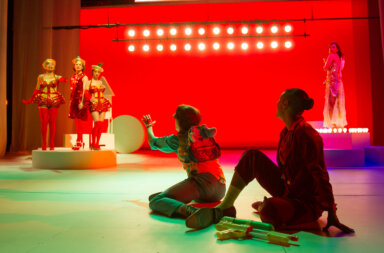 We offer rigorous professional training in the art and craft of lighting design that will give students the skills, the experience, and the opportunity to pursue a career as a lighting professional. Through concentrated study in script analysis and the collaborative process, students will develop an approach to work that is rooted in the text and has an integral relationship to the total production design.
We offer rigorous professional training in the art and craft of lighting design that will give students the skills, the experience, and the opportunity to pursue a career as a lighting professional. Through concentrated study in script analysis and the collaborative process, students will develop an approach to work that is rooted in the text and has an integral relationship to the total production design.
Led by faculty with extensive experience in Broadway, Off-Broadway, regional theater, opera, film, television, and architectural lighting, the intensive course of study includes an immersion into lighting theory, technique and technology, 2D and 3D drafting, associate and assisting skills, projection design, and commercial lighting practice. Realized design work with the Rutgers Theater Company, along with study abroad at Shakespeare’s Globe Theater in London, is a vital part of our comprehensive curriculum.
Faculty
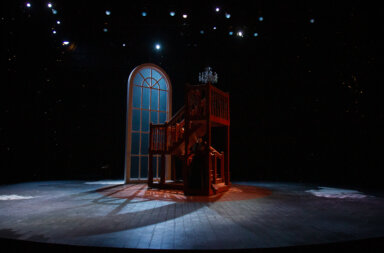 The aim of the design program at Mason Gross School of the Arts is to foster each student’s development as collaborative storyteller and theater artist. Scenic design students can expect rigorous and comprehensive training in the theory, skills, and techniques necessary to pursue a professional career. Our faculty are working professionals who bring their experience in theater, opera, dance, film, television, and multimedia design as well as access to the best current ideas and practices. The 4-year program is a carefully integrated series of classes in scenic design, drafting, history, and drawing including a semester abroad at Shakespeare’s Globe Theater in London. Students have opportunities to collaborate with their classmates on productions for the Rutgers Theater Company and see their designs realized on stage in performance. Visiting professional designers and directors provide additional opportunities to learn and create a network for the future.
The aim of the design program at Mason Gross School of the Arts is to foster each student’s development as collaborative storyteller and theater artist. Scenic design students can expect rigorous and comprehensive training in the theory, skills, and techniques necessary to pursue a professional career. Our faculty are working professionals who bring their experience in theater, opera, dance, film, television, and multimedia design as well as access to the best current ideas and practices. The 4-year program is a carefully integrated series of classes in scenic design, drafting, history, and drawing including a semester abroad at Shakespeare’s Globe Theater in London. Students have opportunities to collaborate with their classmates on productions for the Rutgers Theater Company and see their designs realized on stage in performance. Visiting professional designers and directors provide additional opportunities to learn and create a network for the future.
Faculty
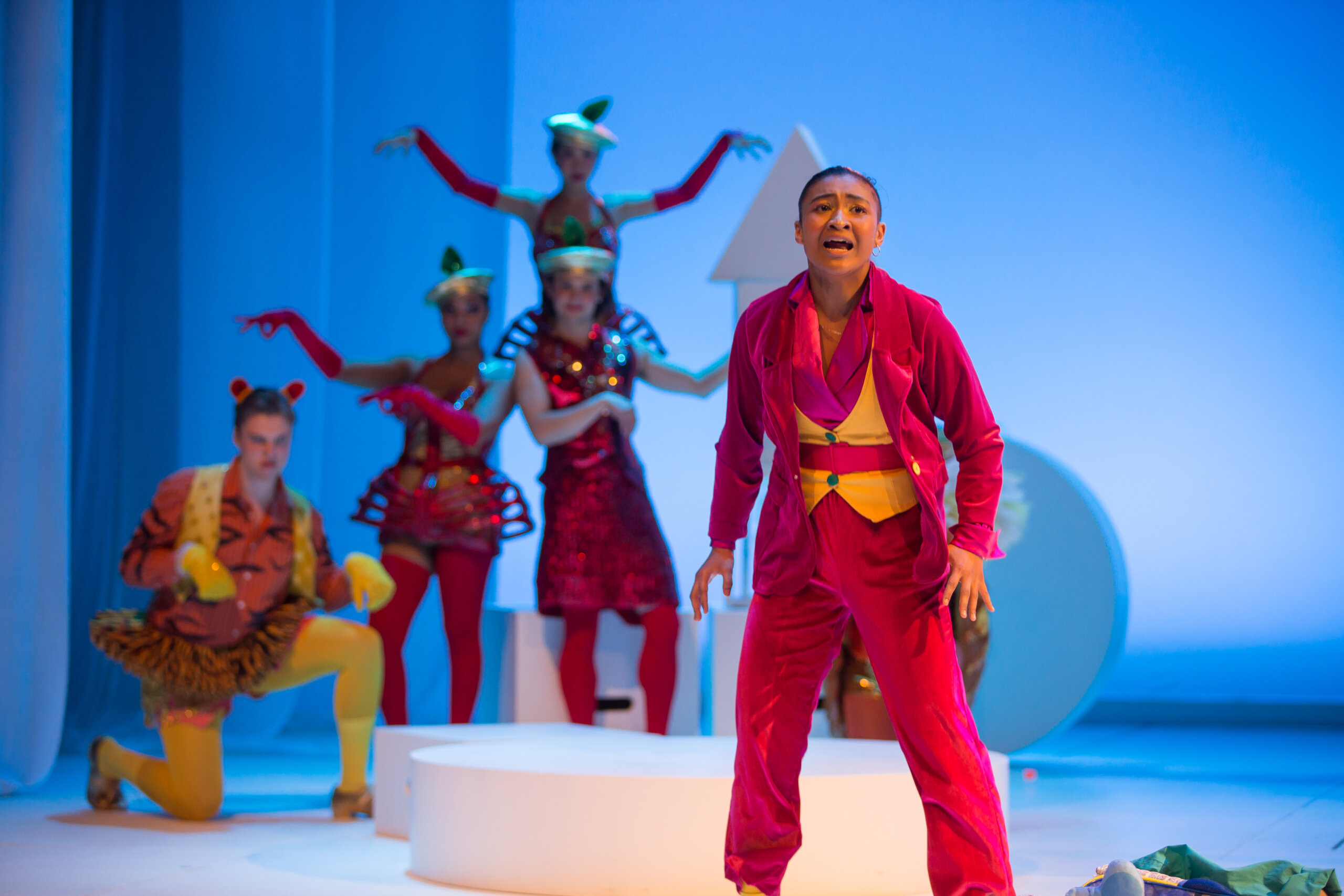
Concentration in Dramaturgy
The Dramaturgy curriculum provides students with a strong multi/transdisciplinary background in performance practices, performance literature and theory, community/audience engagement, and the humanities. The core course of study focuses on building the skills for production dramaturgy is augmented by directed electives in history, foreign languages, and other non-drama courses to build a firm foundation in both theater and the liberal arts. Students in the dramaturgy concentration cultivate their intellectual prowess, analytical skills, and artistic passions through integral multidisciplinary involvement in the Mason Gross productions and classes in the conception and execution of productions, bringing their knowledge of performance history and dramatic structure, their skills in script analysis and contextual research, and their capacity to engage in collaborative conversation into the rehearsal room. These skills also serve our audiences as dramaturgy students practice the art of audience/community outreach and engagement.
The Dramaturgy concentration specializes in production development, production support, critical writing, audience outreach, season planning, and artistic leadership. The transdisciplinary curriculum makes it an excellent program of study for students interested in performing arts history and theory, playwriting and devising, cultural studies, and community outreach.
YEAR 1: FOUNDATION
Students have a core curriculum of performance-centered courses that are augmented by a wide array of electives from across the university. The curriculum of the first year of the concentration is intended to prepare the students to be assigned to productions in various capacities in their second, third, and final year.
YEAR 2: CONTEXT
The second year builds on the first to give greater context and depth to the work and continues the interdisciplinary approach at the center of the concentration. The second year also brings the dramaturgy student into production in various capacities.
YEAR 3: EXPANSION
In the third year the curriculum brings breadth to the student’s studies, with classes that widen the possibilities of the field, such as — but not limited to — immersive performance, devised work, digital dramaturgy, and theater for social development. Students are encouraged to pursue study abroad opportunities — with endorsement for dramaturgically specific programs in Berlin and Cape Town.
YEAR 4: OUTREACH
The fourth year connects the student to the working world of the contemporary dramaturg. Students are required to complete an internship through one of the many area partner schools and institutions with which the department is connected.
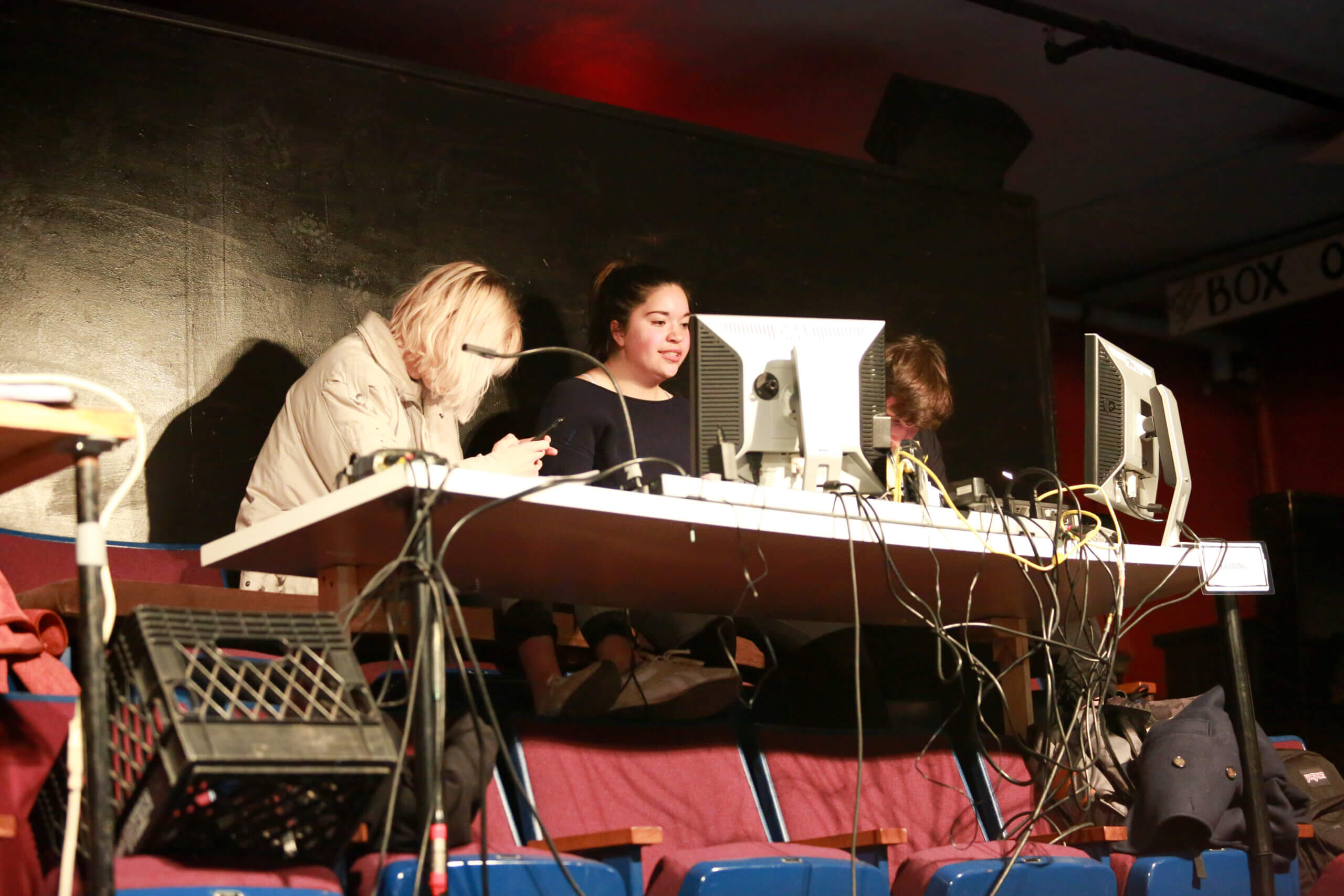
Concentration in Production
Production students are part of a 4-year program designed to train students to be professionals in the fields of costume technology, stage management, or technical direction. The program combines integrated knowledge and respect for all aspects of theater at a variety of production levels to create artistically astute, well-versed, thoughtful production professionals. Core training and curriculum come together in production practice, which informs the process on each play. Working from a core artistic sensibility, production students support the work of the contributing artists as together they bring the performance to realization.
BFA COSTUME TECHNOLOGY LEARNING GOALS
- Students will learn to analyze and critique their own work to strive for success in the implementation of costume designs by developing necessary technical skills in patterning, construction, and crafts as required for translating designs successfully.
- Students will acquire basic skills in the costume design process in order to gain a better understanding and appreciation of the costume design and production process.
- Students will learn to analyze theatrical texts from the point of view of the social, historical, costume, and decorative arts and develop skills to critically analyze projects through the study of Costume History, Theater History, and Art History to provide context for the development of costume production and design culturally and theoretically.
- Students will build an aesthetic awareness and understanding of the creative and collaborative nature of theater design and the need to present ideas verbally and visually to designers, the design team and all other elements of the production to achieve a successful design.
- Students will develop professional practices to be successful costume technicians who are good citizens and ambassadors in the profession.
BFA STAGE MANAGEMENT LEARNING GOALS
- Students will learn how to analyze and deconstruct a script in order to lead the production through rehearsals, into technical rehearsals, and to the completion of their performance run.
- Students will learn the historical constructs, both artistically and professionally, that have informed modern production styles and choices.
- Students will develop the skills used to effectively communicate with theatrical creative, production, and management personnel.
- Students will develop their voice as an artist and vital piece of the creative organism, with the ability to take and receive constructive criticism.
- Students will conduct themselves with professionalism befitting their craft, securing their position as a stage manager who rightly belongs in a room of Theater’s most elite artists.
BFA TECHNICAL DIRECTION LEARNING GOALS
- Students will learn to analyze a script from the point of view of the social, historical, architectural and decorative arts contexts that express the storytelling and characters of the play.
- Students will learn the dynamics of a scene shop, understanding scenic construction, proper tool use and shop safety.
- Students will develop skills in analyzing design concepts as presented by the Scenic Designer and Director understanding material choices, time management and working with the other shops.
- Students will learn to analyze and critique their work and the work of their peers through comprehensive class discussions. Students will build an aesthetic awareness and understanding of the creative and collaborative nature of theater.
- Students will learn “best average” problem-solving methods and techniques of stagecraft used in the development of a scenic construction.
- Students will develop professional practices to be successful in technical production and become good citizens and ambassadors in the profession.
Year 1: Core and Collaboration
During the first year, students take core classes together, providing a strong sense of community and an appreciation of the collaborative nature of theater.
Year 2: Concentration
Moving into the second-year, production students build on the foundations learned in the first year and study more in-depth explorations into their area of concentration.
Year 3: Production and London
In the third year, the Technical Directors and Stage Managers continue their extensive investigation of production and continue to collaborate with the different areas to develop their leadership skills. The Costume Technology students in the fall semester will join the designers in London where they learn from industry professionals and get to see historical costumes up close.
Year 4: Transition
All students will conclude their programs in their fourth year preparing for transition into the industry with professional development, networking, and portfolio development.
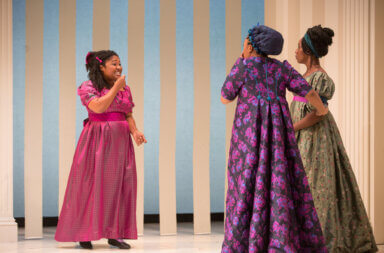 Students enrolled in costume technology will focus their studies on the creation and production of the whole costume. They will learn how to take the rendering created by the costume designer and make it into a 3-dimensional realization. Over the 4 years of study, costume technology students take courses that focus on construction of garments, modern and historical patterning, costume crafts, millinery, and fabric dyeing in addition to costume history and design courses.
Students enrolled in costume technology will focus their studies on the creation and production of the whole costume. They will learn how to take the rendering created by the costume designer and make it into a 3-dimensional realization. Over the 4 years of study, costume technology students take courses that focus on construction of garments, modern and historical patterning, costume crafts, millinery, and fabric dyeing in addition to costume history and design courses.
There will be numerous opportunities to put the skills they learn in the classroom to practice in the costume shop working on departmental productions and see projects realized on stage starting in their first year. All of this helps build their portfolios in preparation for presentation to industry professionals at the Design Portfolio Presentation in New York City at the end of the program.
Faculty
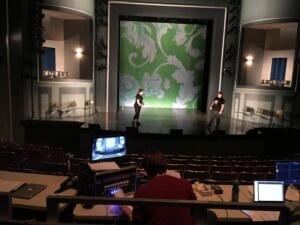 Based on a philosophy that theatrical stage managers are members of the artistic team, acting as leaders and collaborative facilitators and advocating for all of the artistic and technical team members working towards bringing a production to life, the stage management program seeks to develop young students into young professionals confident in their individual style, passion, and skillset. Beginning with an intensive study of core “hard” (literal) and “soft” (intuitive and interpersonal) skills, each stage of the program compounds and expands on these skills, leading into studies of special topics in both theatrical stage management as well as other forms of performance art such as dance and opera, in tandem with practical, hands-on experience gained through production assignments, and always mindful of the ethics of anti-racism, anti-sexism, diversity, equity, and inclusion practices so crucial to maintaining safe environments as one moves through an artistic process.
Based on a philosophy that theatrical stage managers are members of the artistic team, acting as leaders and collaborative facilitators and advocating for all of the artistic and technical team members working towards bringing a production to life, the stage management program seeks to develop young students into young professionals confident in their individual style, passion, and skillset. Beginning with an intensive study of core “hard” (literal) and “soft” (intuitive and interpersonal) skills, each stage of the program compounds and expands on these skills, leading into studies of special topics in both theatrical stage management as well as other forms of performance art such as dance and opera, in tandem with practical, hands-on experience gained through production assignments, and always mindful of the ethics of anti-racism, anti-sexism, diversity, equity, and inclusion practices so crucial to maintaining safe environments as one moves through an artistic process.
Students will grow stronger by practicing many roles on stage management teams and various skill sets – overseen with mentorship and guidance – learning to lead and advocate for processes and environments with mindfulness, care, grace, and nimbleness. Students benefit from access to working artists, as best practices are always evolving. At the Mason Gross School of the Arts Theater Department, we believe that we are training our future colleagues.
Faculty
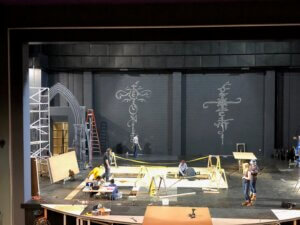 Technical direction students are provided an excellent broad-based knowledge, understanding, and respect for all aspects of theater. A key goal is a deep understanding of designers and the design process, while core curriculum classes ensure a sound foundation and worldwide perspective.
Technical direction students are provided an excellent broad-based knowledge, understanding, and respect for all aspects of theater. A key goal is a deep understanding of designers and the design process, while core curriculum classes ensure a sound foundation and worldwide perspective.
Faculty



